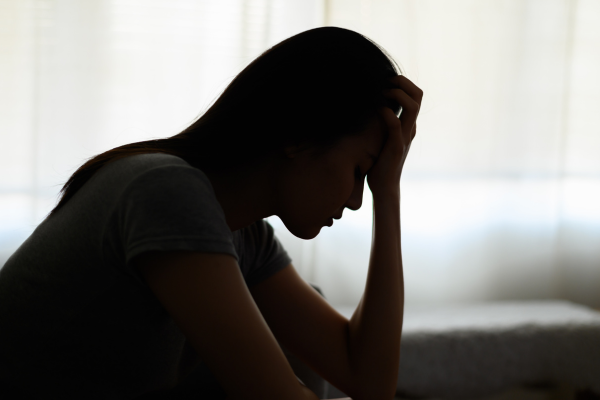Over the last year, Weiss and his 12 employees have offered counseling to direct trauma cases, including bereaved family members and the families of survivors, and indirect ones, such as children who fear to go outside as a result of the war.
By Etgar Lefkovits, JNS
It was three days after the Oct. 7, 2023, Hamas massacre, and an Israeli woman whose brother had been killed in the surprise cross-border terror assault was conferring with a social worker about how to talk with her parents.
At the end of the call, she asked the social worker matter-of-factly where he was from.
His answer surprised her—Beitar Illit, an ultra-Orthodox community southwest of Jerusalem in Gush Etzion.
“Isn’t that an ultra-Orthodox city?” she asked, confessing that coming from a very liberal milieu, the chance of her having a conversation with an ultra-Orthodox man—let alone receiving help from him—was “near zero.”
Then again, it isn’t every day that an NGO created to cater exclusively to the ultra-Orthodox sector makes a 180 shift and decides to focus on helping the public at large, sometimes free of charge.
But that is exactly what Pinchas Weiss, the 35-year-old founding director of Jerusalem-based Mivtach, decided to do in the wake of the Oct. 7 massacre.
For him, the move was more than breaking a glass ceiling; it was his way of closing a personal family chapter and a trauma stemming from the Holocaust.
‘A country in trauma’
“Oct. 7 caused something which showed that we as a nation must create unity and togetherness both in Israel and in the Diaspora,” Weiss told JNS in an interview last week at the organization’s Jerusalem offices.
“There is no doubt that we will be dealing with tens of thousands of people for years who will need treatment for direct and indirect trauma caused by the war,” said Weiss.
“I believe that even when the war ends we will be a country in trauma for some years.”
Over the last year, Weiss and his 12 employees have offered counseling to direct trauma cases, including bereaved family members and the families of survivors, and indirect ones, such as children who fear to go outside as a result of the war.
Some of the scars run very deep.
A 19-year-old man who was sexually assaulted during the attack, and whom Weiss had been supposed to treat at the behest of the young man’s parents, attempted to commit suicide and is now in a psychiatric hospital.
Last month, in a highly publicized case, a 22-year-old survivor of the massacre at the Nova music festival near Kibbutz Re’im killed herself after a year-long struggle with post-traumatic stress disorder.
“There is going to be work for years to come,” said Shraga Weiss, 31, a social worker from Jerusalem.
“In the end, this is a haredi [ultra-Orthodox] NGO, but our emphasis is on professionalism. Each person comes with their own trouble, and we help them with their trouble irrespective of who they are.”
‘Something that needs to be treated’
Israeli police officer Shmuel Ashkenazi, who spent nearly four months of reserve duty after the war began commanding the center that searched the remains of 1,600 terrorists’ bodies, told JNS that he connected with Pinchas after he found himself getting agitated easily and stressed out a month or so after his reserve duty ended.
“He led me to understand that this is something that needs to be treated and that I should not put aside,” said Ashkenazi.
In the end, he was diagnosed with PTSD and referred for treatment.
“Oct. 7 brought this NGO to a place that there is no such thing as ‘just ultra-Orthodox,” said Ashkenazi.
Mivtach, whose budget comes from donations from abroad, is planning to open a course this winter combining EMDR (Eye Movement Desensitization and Reprocessing) and group therapy for 50 additional social workers.
Family history
Pinchas’s decision to become involved in social work has to do with his own personal story.
A decade and half ago, after consulting with and receiving the blessing of his rabbi, he left his electrical engineering studies and enrolled in Bar-Ilan University to study social work, ultimately going on to study at Haifa University (“it will be good for you and the people of Israel,” the rabbi had said).
In one program of study at the Jewish humanitarian organization the Joint, he was the only ultra-Orthodox male in the class, he said.
Since then he’s become accustomed to the surprise some in Israel exhibit when they encounter an ultra-Orthodox social worker.
“It saddens me that death had to bring us together,” he said of his encounter with the woman right after Oct. 7.
Weiss’s grandparents were Holocaust survivors from Hungary whose whole families were murdered by the Nazis.
“They were able to rebuild a new generation, but the only thing that they never got treatment for was their trauma, which they passed down to the next generation,” said Weiss.
“My mission is to ensure that there will be no second generation of pain from Oct. 7.”
